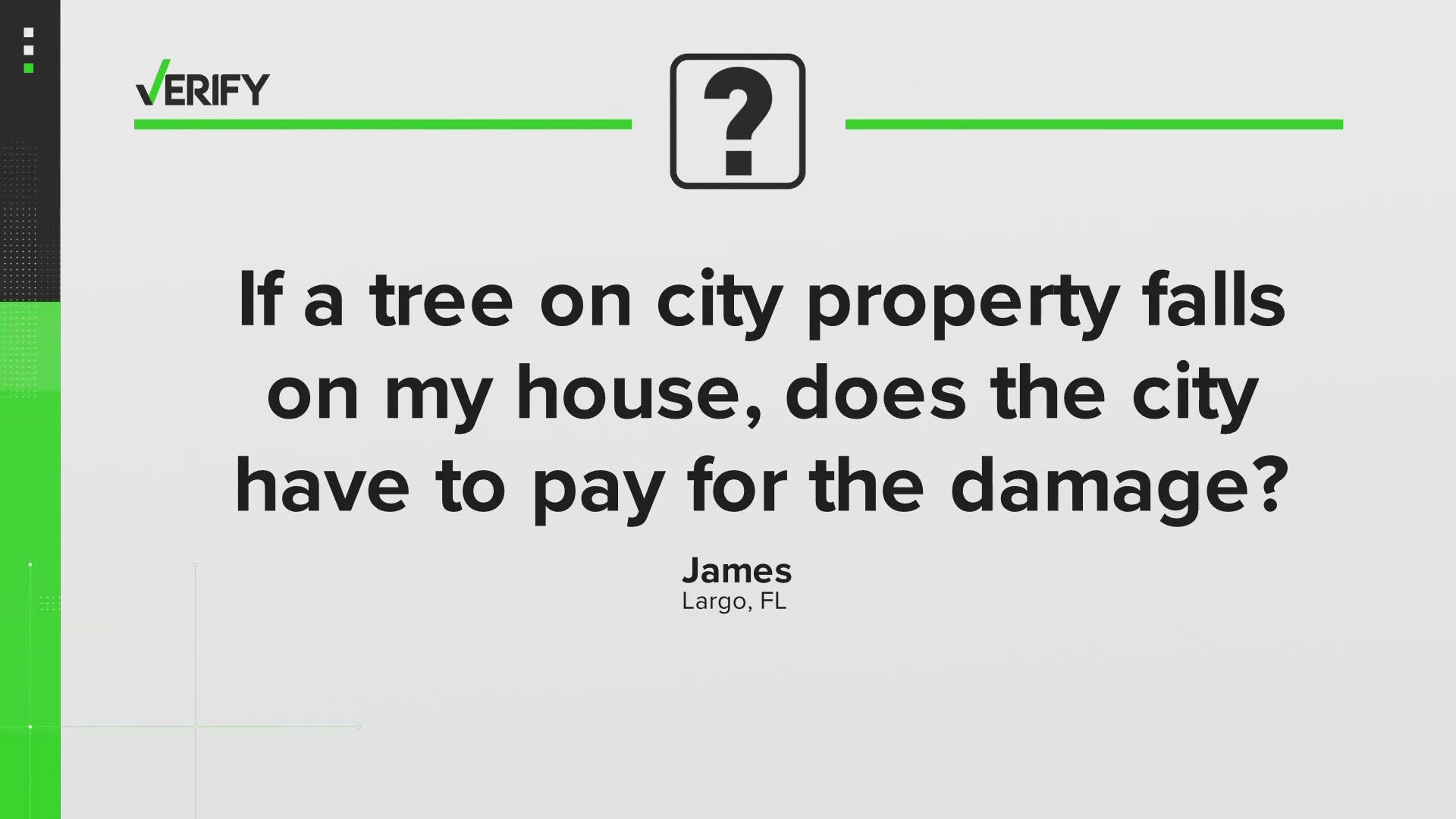ST. PETERSBURG, Fla. — It's a surprise no one wants: a tree crashes into your home.
The bigger the damage, the longer the road to repairs. If the tree was in your yard, you’ll have to navigate filing an insurance claim (a hassle, for sure).
But what happens if the tree came from someone else’s property—especially if that “someone” is the city or county?
VERIFY viewer James from Largo wanted to know whether he could sue the city for the damage caused when a tree on city property fell onto his home.
THE QUESTION
If someone else's tree falls on my home, do they have to pay for the damage?
OUR SOURCES
- Florida Statute
- Florida Jurisprudence
- K.C. Williams III, Managing Partner at Williams Law P.A.
- University of Florida Institute of Food and Agricultural Sciences
THE ANSWER
It depends on the tree’s health. If it was dead or decaying, the owner of the land where the tree stood would likely be responsible for damages. But if the tree was healthy, it typically falls on the homeowner to cover the costs.
WHAT WE FOUND
Florida Jurisprudence is a legal encyclopedia that explains Florida laws and case precedents.
Scholars at the University of Florida relied on it for their "Handbook of Florida Fence and Property Law," which breaks down landowner liability over trees.
Tree owner = responsible for ensuring its health
The handbook explains that under Florida Jurisprudence:
- If a live tree falls, the owner of the damaged property bears the costs.
- If a dead tree falls, the tree's owner is responsible for the damage.
That's because landowners are expected to maintain trees and remove ones at risk of falling. So if the tree was dead when it fell, it shouldn't have been there in the first place.
The handbook clarifies, though, that Florida Jurisprudence isn’t legally binding—courts are not required to follow it. In a legal dispute, both sides would present their case to convince the judge.
If the tree was dead, UF legal scholars present the "negligence theory" to argue that the owner failed to care for it. The lack of maintenance may have turned the tree into a risk.
If healthy, an "act of God" shields responsibility
If the tree wasn't a risk and fell due to some external factor, K.C. Williams III, the managing partner at Williams Law P.A., told VERIFY the tree's landowner can shield themselves from responsibility by using the "act of God" argument.
Florida law doesn't explicitly mention this reasoning in its statutes on tree damage, but offers a definition when discussing liability for pollution damages:
- "An act of God...means only an unforeseeable act exclusively occasioned by the violence of nature without the interference of any human agency."
That would include any causes from strong winds from a hurricane to a car crash that struck a tree and caused it to fall over.
Though not codified, Williams said this defense is widely used in case law to shield landowners from liability.

